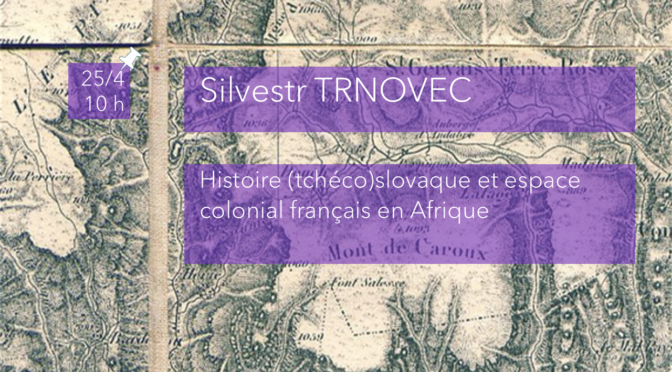
Seventh session of the 2024-2025 CEFRES Francophone
Interdisciplinary Seminar The Map and the Border
In 2023 we started questionning the very act of bordering and representing (a territory, a period, a trajectory). In short, thanks to the interdisciplinarity of our respective disciplines, we began inquiring into the question of the map and the border.
Location: CEFRES, Na Florenci 3, Prague 1
Date: Friday April 25, 2025, from 10 am
Language: French
Speaker: Silvestr TRNOVEC (Institute of Oriental Studies, Slovak Academy of Sciences)
Discussant: Jakub ŠTOFÁNIK (Masaryk Institute and Archives, Czech Academy of Sciences)
Abstract Continue reading (Czecho)slovak History and French Colonial Space in Africa →
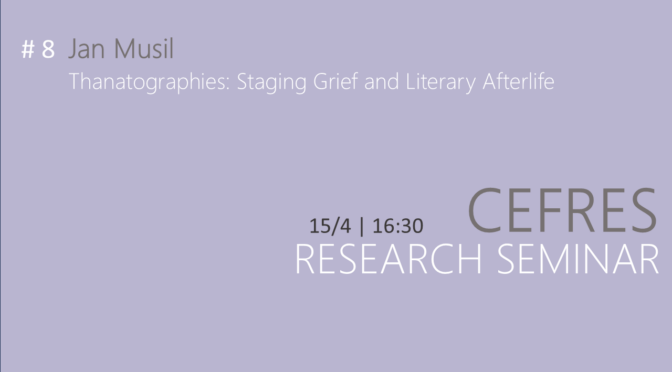
8th session of CEFRES in-house seminar
Through the presentation of works in progress, CEFRES’s Seminar aims at raising and discussing issues about methods, approaches or concepts, in a multidisciplinary spirit, allowing everyone to confront her or his own perspectives with the research presented.
Location: CEFRES Library and online (to get the link, write to cefres[@]cefres.cz)
Date: Tuesday, April 15, 2025 at 4:30 pm
Language: English
Jan MUSIL (Faculty of Arts, Charles University / associated at CEFRES)
Chair: Hélène Martinelli (CEFRES / École Normale Supérieure de Lyon)
Text to be read: Gorer, Geoffrey. “The Pornography of Death.” Encounter., vol. 5, no. 4, 1955.
Abstract:
With the christian idea of afterlife gradually fading away, 20th century rediscovered death as a real possibility and ultimate termination of individual life, only to make it into an insufferable, abjected topic and a taboo that is, as Geoffrey Gorer provocatively suggests in 1955, only accessible to the Western culture in hypertrophied genres of literature and film that he calls collectively the pornography of death. Continue reading Thanatographies. Staging Grief and Literary Afterlife →
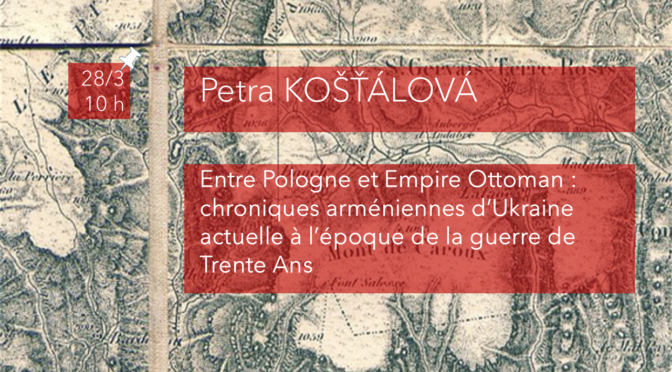
Between Poland and the Ottoman Empire: Armenian Chronicles from Ukraine during the Thirty Years’ War
Fifth session of the 2024-2025 CEFRES Francophone
Interdisciplinary Seminar The Map and the Border
Already in 2023, we started questionning the very act of bordering and representing (a territory, a period, a trajectory). In short, thanks to the interdisciplinarity of our respective disciplines, we began inquiring into the question of the map and the border.
Location: CEFRES, Na Florenci 3, Prague 1
Date: March 28, 2025, from 10am to 12pm
Language: French
Speaker: Petra Košťálová (Institute of Ethnology , Czech Academy of Sciences)
Discussant: Radu Paun (CERCEC/CNRS) & Laurent Tatarenko (CCFEF, Warsaw)
Abstract Continue reading Armenian Chronicles from Ukraine →
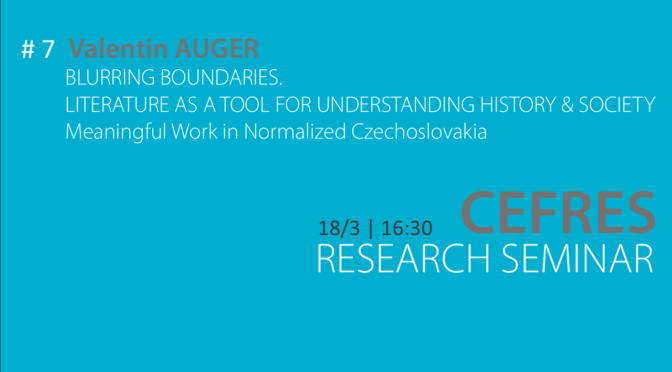
Blurring Boundaries: Literature as a Tool for
Understanding History and Society.
Meaningful work during normalized Czechoslovakia
7th session of CEFRES in-house seminar
Through the presentation of works in progress, CEFRES’s Seminar aims at raising and discussing issues about methods, approaches or concepts, in a multidisciplinary spirit, allowing everyone to confront her or his own perspectives with the research presented.
Location: CEFRES Library and online (to get the link, write to cefres[@]cefres.cz)
Date: Tuesday, March 18, 2025 at 4:30 pm
Language: English
Valentin Auger (Faculty of Arts, Charles University, associated at CEFRES)
Chair: Jan Váňa (Institute of Czech Literature, Czech Academy of Sciences)
Abstract Continue reading Literature as a Tool for Understanding History and Society →
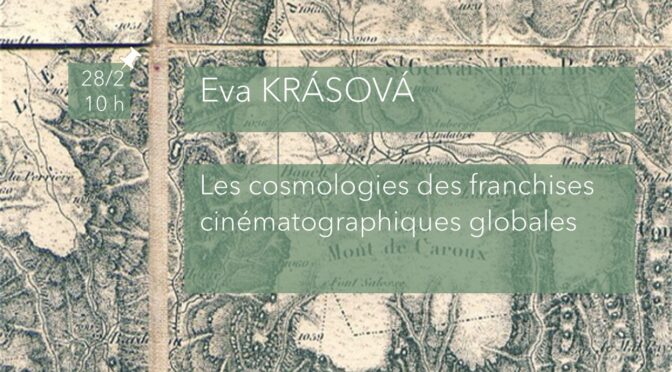
The Cosmologies of Global Film Franchises
Fifth session of the 2024-2025 CEFRES Francophone
Interdisciplinary Seminar The Map and the Border
In 2023 we started questionning the very act of bordering and representing (a territory, a period, a trajectory). In short, thanks to the interdisciplinarity of our respective disciplines, we began inquiring into the question of the map and the border.
Location: CEFRES, Na Florenci 3, Prague 1
Date: Friday February 28, 2025, from 10 am
Language: French
Speaker: Eva KRÁSOVÁ (Institute of Czech and Comparative Literature, Faculty of Arts, Charles University)
Discussant: Chiara MENGOZZI (Faculty of Arts, Charles Unversity)
Abstract Continue reading The Cosmologies of Global Film Franchises →
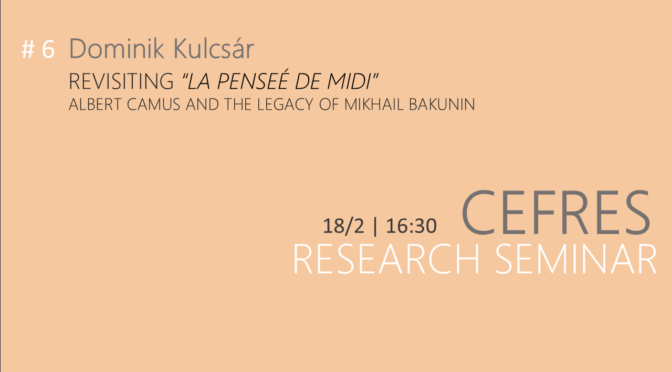
Revisiting “La pensée de midi” – Albert Camus and the Legacy of Mikhail Bakunin
6th session of CEFRES in-house seminar
Through the presentation of works in progress, CEFRES’s Seminar aims at raising and discussing issues about methods, approaches or concepts, in a multidisciplinary spirit, allowing everyone to confront her or his own perspectives with the research presented.
Location: CEFRES Library and online, to get the link, write to cefres[@]cefres.cz
Date: Tuesday, 18th February, 2025 at 4:30 p.m.
Language: English
It wll be hosted by:
Dominik Kulcsár (CEFRES / Institute of Philosophy, Slovak Academy of Sciences)
Chair: Dan SWAIN (Institute of Philosophy, Czech Academy of Sciences)
Abstract Continue reading Revisiting “La pensée de midi”. Albert Camus & Mikhail Bakunin →






